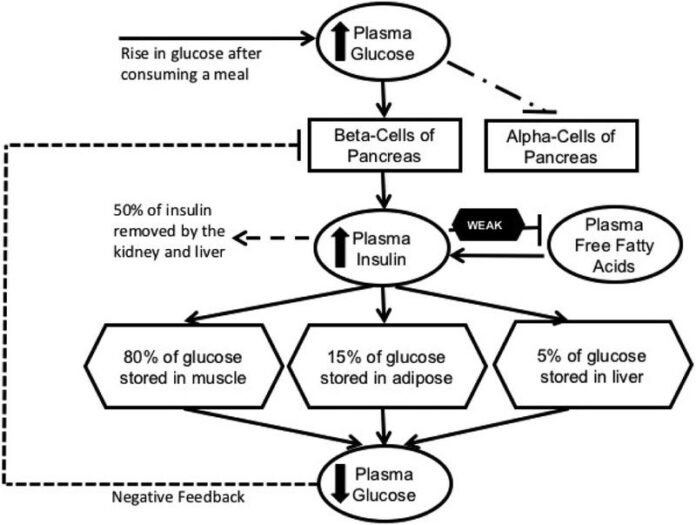
Insulin resistance is a condition that affects many people, yet is often not well understood by the general public. In this article, we will delve into what insulin resistance is, how it affects the body, and what you can do to manage and potentially reverse this condition.
Insulin is a hormone produced by the pancreas that is responsible for regulating blood sugar levels in the body. When we eat food, especially carbohydrates, our blood sugar levels rise. In response, the pancreas releases insulin to help transport glucose from the bloodstream into our cells, where it can be used for energy.
Insulin resistance occurs when the cells in the body become less responsive to the effects of insulin. This means that the pancreas has to produce more insulin in order to keep blood sugar levels in check. Over time, this can lead to higher and higher levels of insulin in the bloodstream, a condition known as hyperinsulinemia.
There are several factors that can contribute to the development of insulin resistance. One of the most common causes is obesity, particularly excess fat around the abdomen. This type of fat, known as visceral fat, is metabolically active and produces hormones and other substances that can interfere with the body’s ability to properly use insulin.
Other factors that can increase the risk of insulin resistance include a sedentary lifestyle, poor diet, genetics, and certain medical conditions such as polycystic ovary syndrome (PCOS) and sleep apnea.
So, what are the signs and symptoms of insulin resistance? In the early stages, there may be few noticeable symptoms. However, as the condition progresses, you may experience symptoms such as fatigue, increased hunger, difficulty losing weight, and high blood sugar levels.
Left unchecked, insulin resistance can lead to serious health complications, including type 2 diabetes, heart disease, and stroke. It is important to identify and address insulin resistance as early as possible in order to prevent these complications.
The good news is that insulin resistance can often be managed and even reversed through lifestyle changes. One of the most effective ways to improve insulin sensitivity is through regular exercise. Physical activity helps to lower blood sugar levels, increase insulin sensitivity, and reduce body fat, all of which can help to reverse insulin resistance.
In addition to exercise, making changes to your diet can also help to improve insulin sensitivity. Eating a balanced diet that is low in refined carbohydrates and sugar, and high in fiber, healthy fats, and lean protein can help to stabilize blood sugar levels and reduce inflammation in the body.
Some foods that are particularly beneficial for managing insulin resistance include leafy green vegetables, berries, nuts and seeds, fatty fish, and whole grains. On the other hand, it is important to limit your intake of sugary drinks, processed foods, and foods high in trans fats and saturated fats, as these can worsen insulin resistance.
In addition to exercise and diet, there are also some supplements that may help to improve insulin sensitivity. These include magnesium, chromium, and alpha-lipoic acid. However, it is important to speak with a healthcare provider before starting any new supplement regimen.
In conclusion, insulin resistance is a common condition that can have serious implications for your health if left untreated. By making changes to your lifestyle, such as exercising regularly, eating a healthy diet, and taking certain supplements, you can effectively manage and potentially reverse insulin resistance. If you suspect that you may have insulin resistance, it is important to speak with a healthcare provider for proper diagnosis and treatment. Remember, your health is in your hands, so take action today to protect your future.












